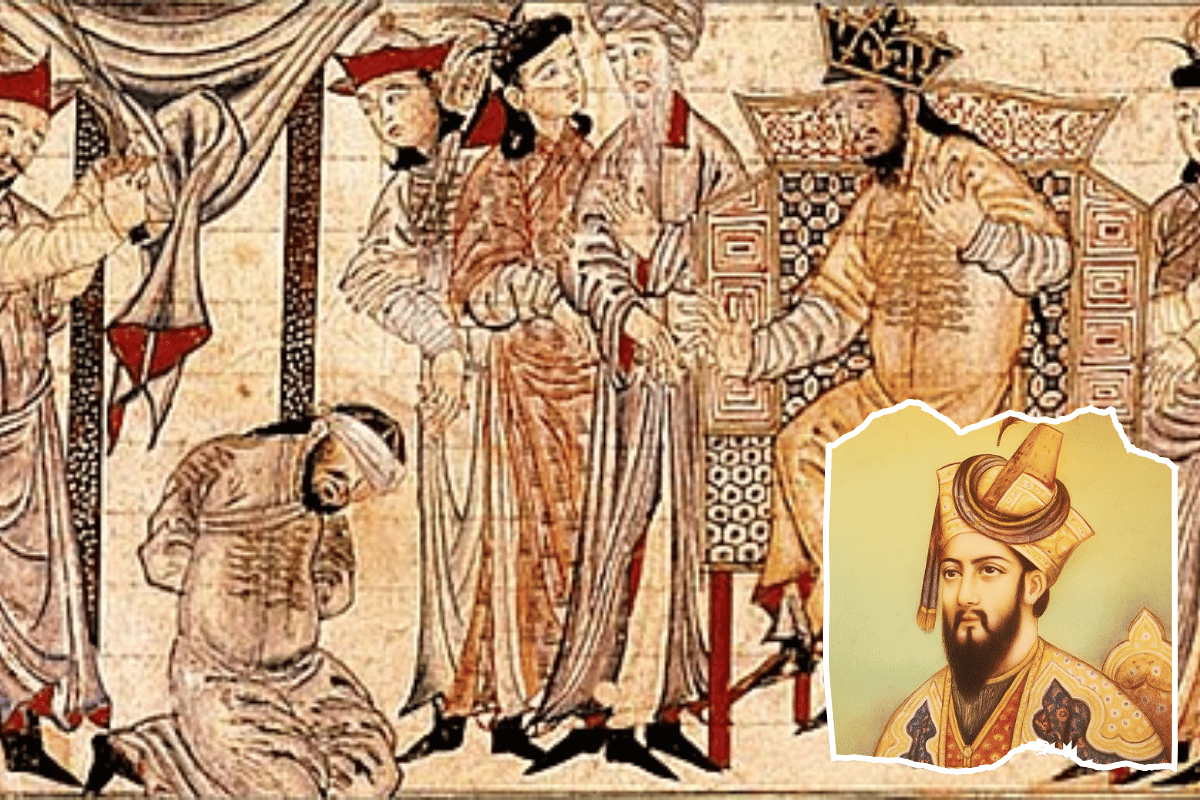
On the 19th of December, The Economist shamelessly named Bangladesh as its ‘Country of the Year’ blatantly ignoring the atrocities committed against Hindus and other minorities.

The Economist’s award to Bangladesh highlights its moral bankruptcy and forces us to question why a Western publication is choosing to deliberately ignore the ongoing persecution of Hindus and other minorities in a country that is experiencing a surge in Islamist extremism.
The Economist’s flawed justification
Notwithstanding the fact that The Economist states that the accolade is not for “the richest, happiest or most virtuous place”, its view that Bangladesh is the country that “has improved the most in the previous 12 months” is farcical. The publication claims that the protests that toppled the previous government have “restored order” and “the transition has so far been encouraging” and deliberately ignores the recent atrocities committed against Hindus and other minorities which include murder, rape and targeted violence. How can any country be viewed as having improved if its minorities have experienced a surge in targeted violence?
Surging extremism and communal violence
There have been numerous instances of murder, rape, violence, vandalism and arson following the fall of the previous government of Bangladesh. Earlier this year, the Bangladesh Hindu Buddhist Christian Unity Council, a reputable minority rights group, published a report detailing over 2,000 incidents of communal violence between just 4th August 2024 and 20th August 2024.
Since then there have been further instances of minorities and minority rights organisations being targeted by the new regime and radical Islamists. Most notable has been the arrest of the Hindu monk Chinmoy Krishna Das Brahmachari who is the spokesperson of Bangladesh Sammilita Sanatani Jagran Jote, a newly formed umbrella group that is fighting to secure the rights of Bangladeshi Hindus. Chinmoy Krishna Das Brahmachari, who was accused of sedition, was recently denied bail and remains in custody. Advocate Ramen Roy, a lawyer, was brutally attacked recently at protests demanding the release of Chinmoy Krishna Das Brahmachari, leaving him in ICU [1].
It is clear that The Economist has deliberately chosen to ignore Chinmoy Krishna Das Brahmachari’s abhorrent detention and the wider violence committed against Hindus whilst awarding Bangladesh this accolade. It has chosen to stay silent on the fact that the interim government is attempting to suppress protests by minorities with fabricated charges of sedition. Its silence is deafening.
The Economist even congratulated Bangladesh’s interim leader, Muhammad Yunus, and claims that the country is “taking strides towards a more liberal government”. The conclusion that Bangladesh will become more liberal appears delusional in light of the fact that the interim government and Yunus have met radical Islamists with open arms. The interim government’s current Adviser for Religious Affairs is A.F.M. Khalid Hossain, a senior member of Hefazat-e-Islam, an extremist group that has a history of attacking Hindus and making inflammatory remarks about minorities [2]. Yunus himself has had meetings with the leaders of Hefazat, which The Economist has previously acknowledged is a radical movement financed by doctrinaire Islamists in Saudi Arabia [3]. Why has The Economist chosen to whitewash the increasing influence of extremist elements within Yunus-led interim government? Hefazat has demanded the introduction of blasphemy laws in Bangladesh and recently demanded the banning of ISKCON, commonly referred to as the Hare Krishna movement, for being a “terrorist organisation” [4].
Bangladesh’s interim government also lifted the ban on Jamaat-e-Islami, Bangladesh’s largest Islamist political party which opposed Bangladesh’s independence from Pakistan and formed paramilitary groups that committed war crimes alongside the Pakistan Army in 1971. According to a Dhaka University professor, who spoke to an international online news magazine on condition of anonymity, Jamaat-e-Islami is “lobbying” with the interim government to ensure textbooks do not “demonise” them while mentioning the Liberation War [5]. Why is The Economist ignoring such attempts by Islamists to rewrite history?
Even Jashimuddin Rahmani, the leader of an Al-Qaeda-inspired militant group called Ansarullah Bangla Team, was released from jail after the fall of the previous government and it appears the interim government has not pursued any actions to limit his activities [6]. Such appeasement will only embolden radical extremists.
Moral hypocrisy
The Economist’s conscious decision to ignore the persecution of minorities is an example of its moral hypocrisy. It has chosen to present a shallow narrative of progress by naming Bangladesh as its ‘Country of the Year’ for 2024 despite legitimate fears that the country will become another hub for Islamist extremism.
It is time for publications like The Economist to acknowledge their shortcomings in reporting on the oppression faced by Hindus and other minorities in Bangladesh and realise that any unbalanced journalism is as robust as a house of cards.
References
- https://www.business-standard.com/world-news/iskcon-says-lawyer-defending-chinmoy-das-attacked-in-bangladesh-details-124120300380_1.html
- https://www.dhakatribune.com/bangladesh/nation/241438/hefazat-e-islam-followers-attack-hindu-houses-in
- https://www.economist.com/asia/2017/12/07/the-battle-between-bangladeshs-two-begums-is-over
- https://www.bbc.co.uk/news/world-asia-22424708/ and https://www.tbsnews.net/bangladesh/politics/hefazat-e-islam-demands-banning-iskcon-terrorist-organisation-1005761
- https://thediplomat.com/2024/12/bangladeshs-bid-to-rewrite-history
- https://www.japantimes.co.jp/commentary/2024/12/16/world/bangladesh-islamic-violence/









